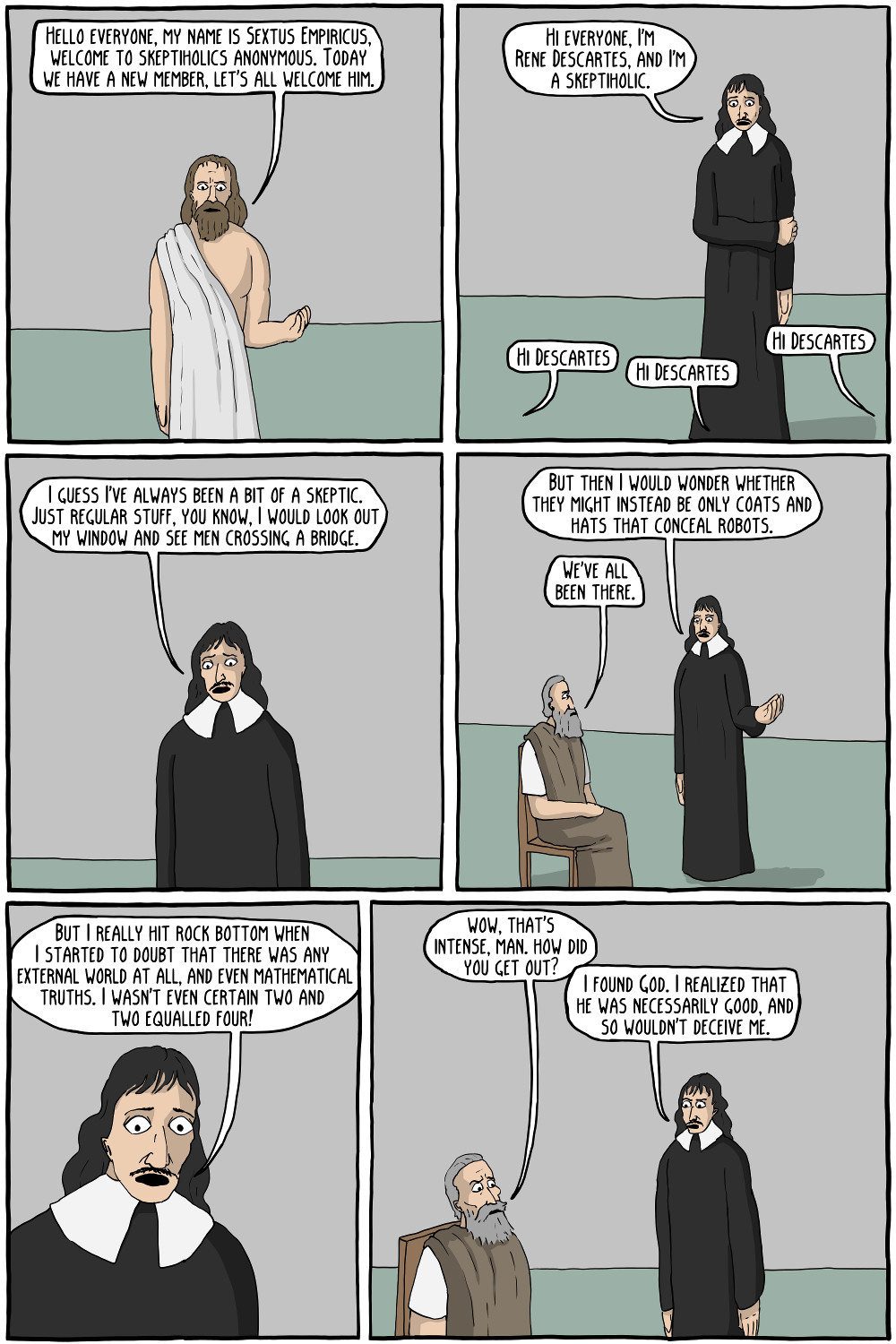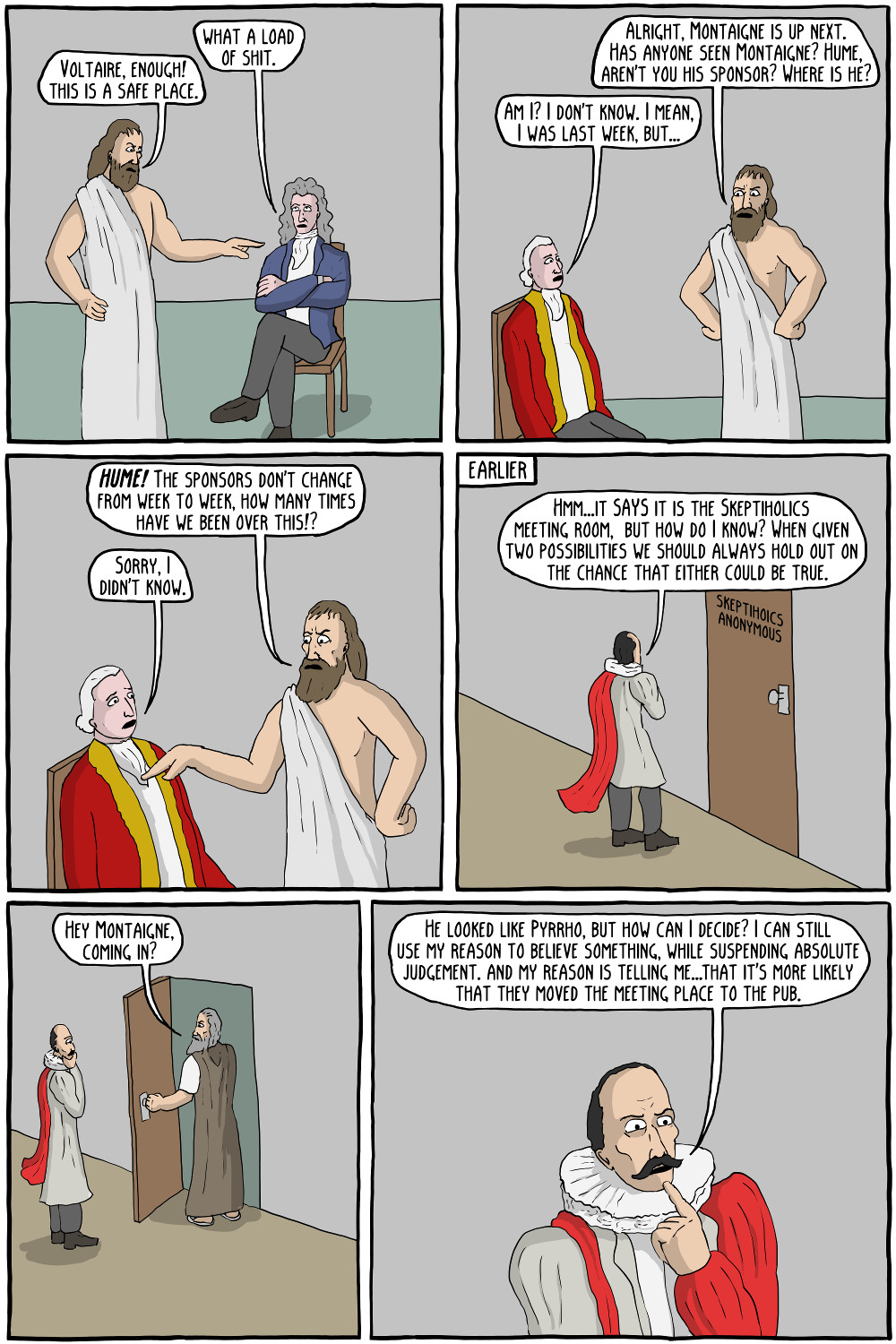

Descartes employed a technique known as methodological doubt, in which he attempted to doubt everything he knew, in order to determine if there was anything that was absolutely certain - anything which could not be doubted. This resulted in his famous cogito ergo sum, "I think, therefore I am", meaning that no matter what, he could not doubt his own existence. From this he (rather dubiously) built everything back up by showing that God exists and is necessarily good, so wouldn't deceive us.
Pyrrho was an ancient Greek skeptic. Rather fittingly, we don't know much about Pyrrho, so we can't really say what he did or didn't believe with any confidence. What we do know comes mostly through the writings of Sextus Empiricus. Sextus Empiricus was a Pyrrhonian Skeptic who lived several hundred years after Pyrrho, but was working with the same framework. He was a very extreme skeptic, possibly even having no beliefs at all. Pyrrho and Sextus Empiricus, like many of the Greek philosophers, connected their ideas to a philosophy of what it meant to live the good life, and claimed that taking on no beliefs lead to a life of tranquil happiness.
David Hume was an eighteenth century skeptic, best known for doubting things such as causality and morality.
Voltaire was a Enlightenment thinker, and was highly skeptical of the Church at the time. Although he was perhaps not a complete atheist, he certainly had a skeptical stance towards the Bible.
Montaigne was a sixteenth century philosopher, essayist, and skeptic. Like Descartes later on, he was very influenced by ancient Greek skepticism, in particular the writing of Sextus Empiricus. Although, unlike the Pyrrhonians, he thought reason could always adjudicate between two views. He was also a boss dresser, and while this is speculation, I think it's probably fair to say that he drove the ladies wild with that huge thing he wore on his neck.
Permanent Link to this Comic: https://existentialcomics.com/comic/93
Support the comic on Patreon!










